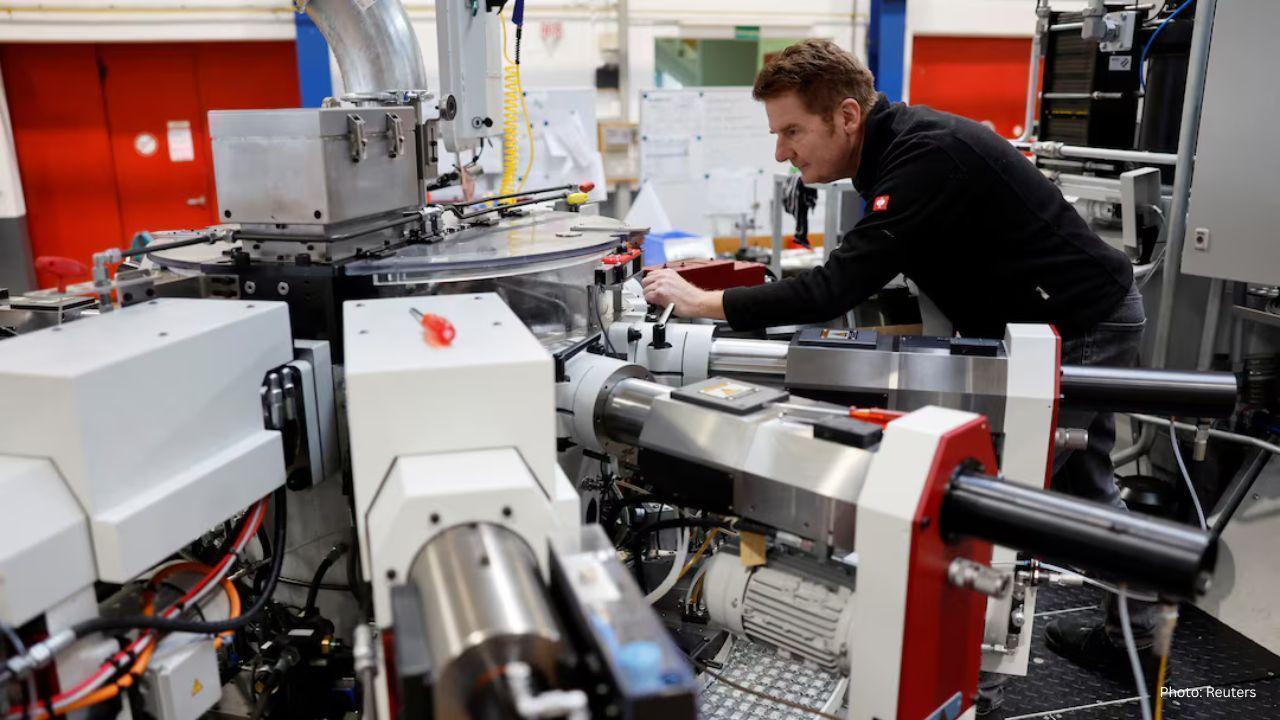
Post by : Sameer Saifi
A major Swiss machine-making company, K.R. Pfiffner, is facing very tough times. The company is losing business because of two big problems: the slowdown in the global car industry and high tariffs placed by the United States. These issues have hit the company so badly that it must lay off most of its workers.
K.R. Pfiffner is known for making very advanced and expensive machines. These machines are used by large car companies like Mercedes-Benz and top suppliers like Bosch. For many years, the company had strong business, especially in Europe. But now, things have changed.
The European car market is weak, and companies in Germany and China are buying fewer machines. At the same time, U.S. President Donald Trump put heavy tariffs on Swiss precision machines. This suddenly made Pfiffner’s products much more expensive in the U.S. market. As a result, many American customers stopped placing orders.
The impact was huge for the company. Out of 105 employees, 80 people are losing their jobs. One of them is Norbert Steuer, a 59-year-old logistics worker who has worked at the company for more than 30 years. He said the announcement felt “like a bomb went off.” He is worried about the future, especially because he is older and finding a new job may be difficult.
The problem is not just for Pfiffner. Many other companies across Europe are also suffering. Germany, which is known as a strong manufacturing country, has seen more than 114,000 industrial jobs lost in one year. Big companies like Mercedes-Benz, Bosch, and Continental are also cutting thousands of jobs.
Swiss industry group Swissmem said that if U.S. tariffs continue, Switzerland’s mechanical and engineering sector may lose nearly 30,000 jobs by the end of 2026. Even though Switzerland’s unemployment rate is still low at around 3%, it has been slowly rising.
Pfiffner’s CEO, Andreas Ewald, said that the U.S. tariffs are a “killer” for business. The tariffs made their machines almost 50% more expensive for American buyers. This pushed many customers away and left the company with empty order books.
The company’s parent group, FFG, has started moving some production and technology to its factories in the United States. This might help them avoid tariffs in the future. But for now, the workers in Switzerland are facing a painful situation.
There is some hope. The U.S. and Switzerland recently moved closer to a deal that may reduce the tariffs. If that happens, it could save some jobs. But many workers are uncertain, and the current atmosphere is tense.
Inside Pfiffner’s large factory in Utzenstorf, the once-busy floors are now quiet. There are fewer workers, and production is slow. Some employees say the constant talk about job cuts is hurting the local economy, as people are becoming more cautious with money.
Experts say the global industry is facing a “downward spiral,” with weak demand, high costs, and growing job losses across Europe and the U.S. In October, layoffs in the United States reached their highest level for that month in over 20 years.
For workers like Steuer, the future feels unclear. After giving more than 30 years to the company, he is unsure where he will go next. The company he knew for years is changing fast, and the whole industry around him is also under pressure.
The story of Pfiffner shows how global economic changes, political decisions, and industry slowdowns can deeply affect workers and companies—even in countries with strong economies like Switzerland.
#trending #latest #Switzerland #Economy #ManufacturingCrisis #USTariffs #AutoIndustry #JobCuts #GlobalTrade #armustnews










Advances in Aerospace Technology and Commercial Aviation Recovery
Insights into breakthrough aerospace technologies and commercial aviation’s recovery amid 2025 chall

Defense Modernization and Strategic Spending Trends
Explore key trends in global defense modernization and strategic military spending shaping 2025 secu

Tens of Thousands Protest in Serbia on Anniversary of Deadly Roof Collapse
Tens of thousands in Novi Sad mark a year since a deadly station roof collapse that killed 16, prote

Canada PM Carney Apologizes to Trump Over Controversial Reagan Anti-Tariff Ad
Canadian PM Mark Carney apologized to President Trump over an Ontario anti-tariff ad quoting Reagan,

The ad that stirred a hornets nest, and made Canadian PM Carney say sorry to Trump
Canadian PM Mark Carney apologizes to US President Trump after a tariff-related ad causes diplomatic

Bengaluru-Mumbai Superfast Train Approved After 30-Year Wait
Railways approves new superfast train connecting Bengaluru and Mumbai, ending a 30-year demand, easi